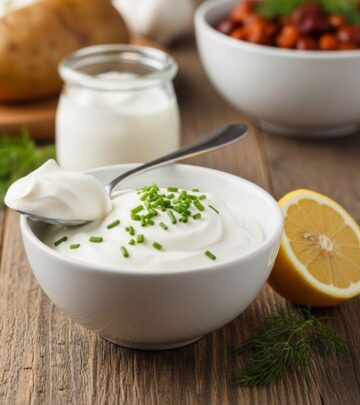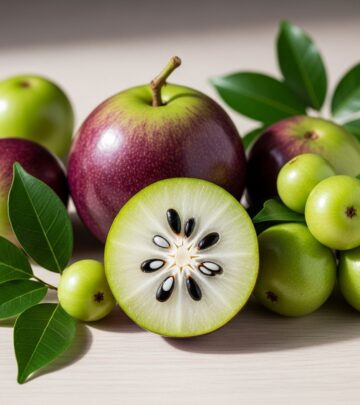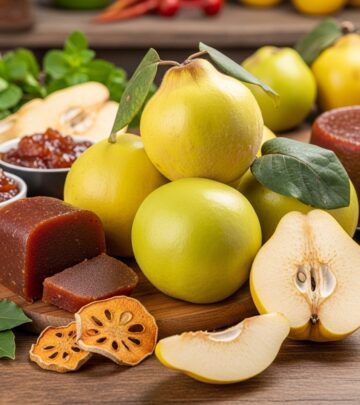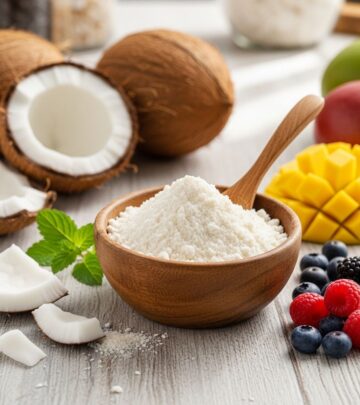Turkey Berry (Solanum torvum): Uses, Benefits, Side Effects, and Nutrition
An iron-rich fruit that bolsters blood health and adds depth to savory dishes.
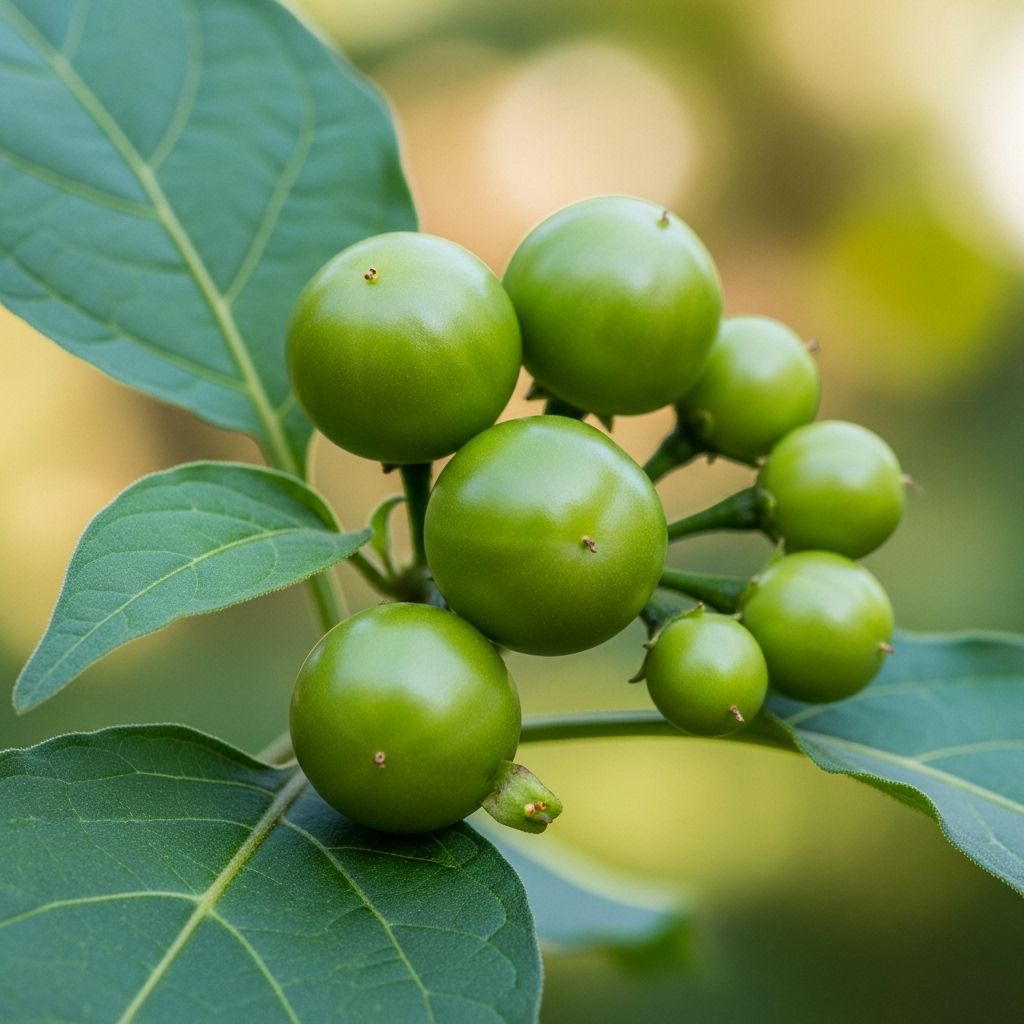
What Is Turkey Berry (Solanum torvum)?
n
Turkey berry, scientifically known as Solanum torvum, is a spiny, flowering shrub that produces small, pea-sized, yellow-green berries. These berries are utilized both as food and as an herbal remedy in various parts of the world. Part of the nightshade family (Solanaceae), turkey berry is a botanical cousin of eggplants, tomatoes, and other well-known vegetables.
n
- n
- Common names: prickly nightshade, devil’s fig, pea eggplant, susumber, shoo shoo bush
- Native regions: Likely indigenous to Central and South America, but now found worldwide in tropical and subtropical areas
- Typical habitat: Grows wild and spreads rapidly, much like a weed, thriving in sunny, temperate climates
n
n
n
n
The plant is widely cultivated and valued for both its culinary versatility and medicinal significance in folk traditions.
nn
Traditional and Culinary Uses of Turkey Berry
n
Turkey berry has a rich history in traditional cuisines and folk remedies across multiple continents. It is consumed—both fresh and cooked—in Asia, Africa, the Caribbean, Central and South America.
n
- n
- Culinary use: Berries are cooked whole, fried, or incorporated into stews, curries, and pickles. They are mildly bitter, adding depth and balance to dishes.
- Popular recipes: In South India, turkey berry is integral to “theeyal” or “kuzhambu,” a spiced tamarind-based curry; in Ghana, it is commonly stewed or added to soups.
- Preservation: In India, berries are sometimes sun-dried and stored as “sundaikkai vathal” for later use during off-seasons.
n
n
n
n
Aside from the fruit, leaves, roots, and stems are also utilized in traditional medicine, often dried and ground into powders, or brewed into herbal teas and decoctions.
nn
Nutritional Value of Turkey Berry
n
Turkey berry offers an array of nutrients, making it a wholesome addition to the diet. The berries are especially valued in traditional practices as a natural means to increase iron intake.
n
| Nutrient | Role / Health Benefit |
|---|---|
| Protein | Supports growth, tissue repair, and immune function |
| Carbohydrates | Provides dietary energy |
| Fats | Essential for nutrient absorption and cell function |
| Iron | Critical for making hemoglobin and preventing anemia |
| Potassium | Regulates fluid balance, nerve signals, and blood pressure |
| Magnesium & Copper | Support metabolic health and enzyme functions |
| Dietary Fiber | Improves gut health and supports regular digestion |
n
In traditional medicine—especially in parts of Africa and South Asia—turkey berry is often recommended for boosting iron and nutrient intake, particularly for children, pregnant women, and individuals with anemia.
nn
Turkey Berry: Health Benefits Backed by Tradition and Science
n
While modern scientific investigations are still evolving, turkey berry has been used for generations as a remedy for a wide array of conditions. Scientific studies have primarily focused on laboratory and animal models, but these findings do provide some support for several of the traditional uses.
n
Major Health Benefits
n
- n
- Reduces High Blood Pressure: Traditional use suggests turkey berry may help regulate blood pressure, likely owing to its potassium and antioxidant content.
- Boosts Hemoglobin & Fights Anemia: Because of its notable iron content, the berry is consumed raw or cooked in some cultures to help combat anemia.
- Improves Immune Function: Antimicrobial and antiviral compounds in turkey berry may help the body resist infections.
- Promotes Wound Healing: Leaves and fruit are sometimes applied externally or used in poultices to speed up the healing process.
- Supports Digestive Health: The fruit’s fiber content and traditional reputation for aiding digestion make it a popular remedy for stomach issues.
- Fights Free Radicals: Turkey berry contains antioxidants that may help reduce oxidative stress.
n
n
n
n
n
n
n
Note: The majority of these benefits are cited from traditional use and preliminary animal or laboratory research. Rigorous human clinical trials are generally still lacking.
nn
How to Use Turkey Berry: Preparation and Recipes
n
Turkey berry is incorporated into meals in many creative ways. It may be eaten raw, cooked, fried, or made into herbal teas and powders. Below are common culinary and medicinal preparations:
n
- n
- Fresh or Fried: Ripe berries can be directly fried in coconut oil or ghee, which neutralizes any potential bitterness and brings out their flavor.
- Curry and Stew: A classic South Indian preparation is Pachai Sundaikkai Theeyal Kuzhambu, a spiced curry made with turkey berry, onions, garlic, tamarind, spices, and coconut.
- Dried Berries: In some regions, berries are sun-dried and used in curries as “vathal.” Dried berries can be kept for a long time, ensuring year-round availability.
- Herbal Tea: Leaves and dried berries can be boiled to make a medicinal decoction that is sometimes consumed as a general health tonic.
n
n
n
n
n
Sample Recipe: Pachai Sundaikkai Theeyal
n
- n
- Main ingredients: Turkey berry, small onions, garlic, tamarind, coconut, chili powder, coriander, cumin, curry leaves, and coconut oil.
- Preparation: Berries are removed from their stems, lightly crushed, and cooked with sautéed aromatics and fresh coconut in a spiced tamarind gravy.
n
n
n
Tip: Always ensure berries are ripe—unripe fruit may have higher levels of certain natural toxins (glycoalkaloids).
nn
Possible Side Effects and Precautions
n
While turkey berry is generally considered safe for most people, certain precautions are recommended due to its family relationship with other nightshades and the presence of glycoalkaloids (natural plant compounds with potential toxicity at high doses).
n
- n
- Digestive symptoms: Ingesting large amounts of turkey berry can cause stomach ache, nausea, diarrhea, or dizziness due to glycoalkaloid content.
- Allergic reactions: Some individuals may have difficulty digesting nightshades in general. Avoid turkey berry if you have known nightshade allergies.
- Pregnancy and breastfeeding: Tradition suggests possible benefits, but there is a lack of modern clinical research on safety for pregnant or breastfeeding women. Consult a healthcare provider before use.
- Unripe fruit and wild types: Only consume fully ripe fruit, as some wild varieties may contain higher levels of toxins and may be indistinguishable from the edible kind.
n
n
n
n
n
Important: When in doubt, consult your doctor before integrating turkey berry regularly into your diet, especially if you have underlying health issues or are on medication.
nn
Turkey Berry in Traditional Medicine: Folklore and Modern Science
n
Across various cultures, turkey berry is celebrated for its perceived medicinal abilities. While ample anecdotal evidence exists, scientific backing is still in early stages.
n
- n
- Africa: Used to improve iron stores, combat fatigue, and stimulate breast milk production in mothers.
- Asia: Relied on to manage high blood pressure, relieve pain, and treat digestive complaints.
- Caribbean: Consumed to address anemia and infections, and as a general health booster.
n
n
n
n
Laboratory and animal research suggest:
n
- n
- Potential anti-inflammatory, antimicrobial, and antioxidant activities.
- Positive effects on blood-glucose levels and organ protection (yet to be conclusively proven in humans).
n
n
n
Further human studies are needed to validate and standardize its medicinal applications.
nn
How to Select, Store, and Consume Turkey Berry
n
For best results, it is important to use the right type and maturity of turkey berry.
n
- n
- Selection: Choose firm, green-to-yellow ripe berries. Discard unripe or shriveled berries.
- Storage: Fresh berries can be kept in a cool, dry place for up to a week. Dried berries last for months in airtight containers.
- Preparation: Always wash and lightly crush berries before cooking. Cooking neutralizes any residual bitterness or toxins.
n
n
n
nn
Frequently Asked Questions (FAQs) about Turkey Berry
n
Q1: What is the best way to eat turkey berry?
n
A: The berries are typically cooked whole in curries or fried as a side. Avoid eating them raw in large amounts; always prefer ripe berries.
nn
Q2: Are there any risks with eating turkey berry?
n
A: While generally safe when eaten ripe and cooked, overconsumption or ingestion of unripe berries can lead to digestive upset due to glycoalkaloids. Some individuals sensitive to nightshade plants should avoid them.
nn
Q3: Can pregnant or breastfeeding women eat turkey berry?
n
A: In some cultures, it is consumed during pregnancy for its iron content, but scientific data on safety is limited. Always consult a qualified medical professional for personalized advice.
nn
Q4: What are the key nutrients in turkey berry?
n
A: Turkey berry contains iron, potassium, protein, carbs, fiber, and trace minerals. It is especially valued for its role in promoting healthy blood and digestion.
nn
Q5: Are turkey berries organic or do they contain additives?
n
A: Fresh or dried turkey berries are typically organic and free from preservatives or additives when sourced from natural agricultural practices.
nn
Final Thoughts: Is Turkey Berry Right for You?
n
Turkey berry (Solanum torvum) is a remarkable plant, valued worldwide for its unique blend of nutrition, flavor, and traditional healing properties. Its inclusion in the diet can be beneficial, especially in regions where dietary iron intake is critical. Nevertheless, caution should be exercised due to natural glycoalkaloids, individual allergies, and a lack of robust scientific evaluation in humans. As with any food with medicinal claims, moderation and medical consultation are essential.
References
- https://www.virundhombal.com/2023/12/pachai-sundaikkai-theeyal-turkey-berry.html
- https://www.healthline.com/nutrition/turkey-berry
- https://www.walmart.com/ip/Patrick-s-Best-Turkey-Berry-800g-Rich-In-Flavor-Turkey-Berry/3923391007
- https://www.cabidigitallibrary.org/doi/full/10.1079/cabicompendium.50559
- https://www.graphic.com.gh/lifestyle/life/ghana-news-health-benefits-of-turkey-berries.html
- https://www.stylecraze.com/author/payal_karnik/
- https://www.cabidigitallibrary.org/doi/pdf/10.1079/cabicompendium.50559?download=true
- https://momsdish.com/recipe/177/cottage-cheese-pancakes
Read full bio of Sneha Tete


